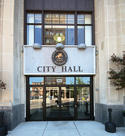Over the past half century, the tiny city-state of Singapore has developed arguably the most successful formula for growth and social uplift on the planet. Like the famous Singapore sling — a tropical cocktail blending gin, grenadine, sweet and sour mix, cherry brandy and club soda — the city’s mandarins created the perfect recipe for rapid economic growth by combining its strategic location and hard-driving, largely Chinese population, with first-class infrastructure, a relentlessly improved local workforce and an opportunistic immigration policy designed to fill gaps in the labor pool. read more »
Urban Issues
A Suburban Economic Future?
The basic, often unappreciated, fact about economic life in Australia’s metropolitan regions are that most of the jobs are in suburban locations. Our central business districts (CBDs) – prominent though they are – account for only around 10% of all metro wide jobs. That rises to maybe 15% if you include inner city areas. But still, 85% of everyone else who calls Brisbane, Sydney, or Melbourne home works somewhere other than the CBD or inner city. read more »
Metropolitan Dispersion: 1950-2012
America has become much more metropolitan since 1950, when the Office of Management and Budget released the first modern criteria for determining the boundaries of metropolitan areas. Metropolitan areas are the economic or functional definition of the "city." They are otherwise known as labor markets and include the physical "urban area" (the area of continuous development) as well as economically connected rural territory from which people commute into the urban area. read more »
Will Europe Hit a Demographic Tipping Point?
The best hope for the youth of France, according to a recent New York Times op-ed, is, well, to get out of France. Youth unemployment in France is running at 26%. No wonder some might believe their best opportunity lies elsewhere, including their old colony of New France (Quebec).
But this punishing level of unemployment is only slightly worse than the EU-wide rate of 23%. Countries like Spain and Greece have astonishing youth unemployment rates of nearly 60%. What does the future of these countries’ youth look like? Or their adults for that matter? Maybe it’s a future on another continent, including former colonies. read more »
Eastvale, CA: Suburban Charm Trumps Urban Convenience
Eastvale, a new community just over the Riverside County line from Orange County, is a place that most urbanists would naturally detest. City Hall is no architectural masterpiece, occupying a small office inside the area's largest shopping mall. The streets are wide, and the houses tend to be over 2,500 square feet. There's nothing close to a walking district and little in the way of restaurants besides fast-food outlets and chain eateries. read more »
The Truce That Could Save American Cities
Some states, such as New York and California, are loudly proclaiming that they have returned from the fiscal abyss. Maybe for now, but the future doesn’t look so good when long-term debt and pension obligations are factored in. Taken together, our 50 states owe $1 trillion in unfunded pension obligations. read more »
New Data on Commuting in Canada
New data from the National Household Survey indicates that driving to work continues to surge in Canada. In addition to providing work access market shares, the National Household Survey provides one-way work trip travel time estimates for all metropolitan areas.
The National Data
Between the 2006 census and the 2011 National Household Survey indicates an increase of nearly 750,000 additional work-bound cars on the road. The increase in driving exceeded the overall increase of 585,000 in employment (Figure 1). read more »
The Persistence of Failed History: “White Infill” as the New “White Flight”?
“There is a secret at the core of our nation. And those who dare expose it must be condemned, must be shamed, must be driven from polite society. But the truth stalks us like bad credit.” – Writer Ta-Nehisi Coates
***
With the recent Supreme Courts strike down of the 1965 Voting Rights Act, which was created to protect minority representation, the headline in the Huffington Post read “Back to 1964?” While some contend the title hyperbolic, the HuffPost lead, if not the strike down itself, reflects the reality of a country still tethered to its discriminatory past. read more »
A Million New Housing Units: The Limits of Good Intentions
In May 2013, the district of Husby in suburban Stockholm, Sweden was shaken by “angry young men” engaging in destructive behavior for about 72 hours,1 including the burning of automobiles and other properties and attacks on police officers (over 30 officers were injured). The violence spread to the nearby districts of Rinkeby and Tensta as well as to other parts of Sweden. read more »
Suburbia's Sacred Spaces
From the earliest times, cities have revolved around three basic concepts – security, the marketplace and what I call "the sacred space." In contemporary America, everyone wants safe streets and a thriving economy, but what about the ethereal side, the places that makes us take note of a place and feel, in some way, a connection with its history? read more »





















